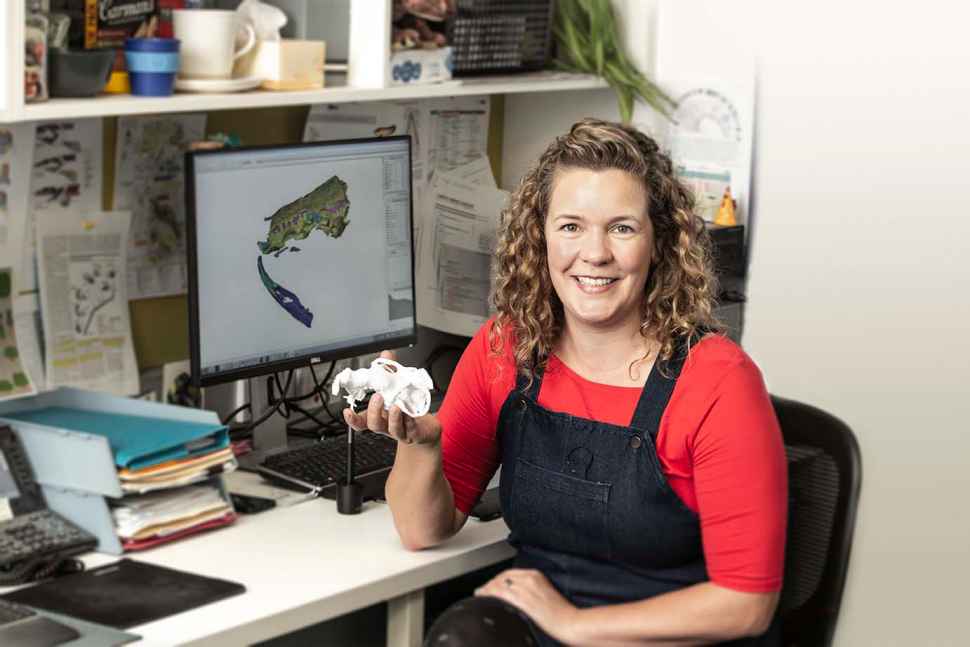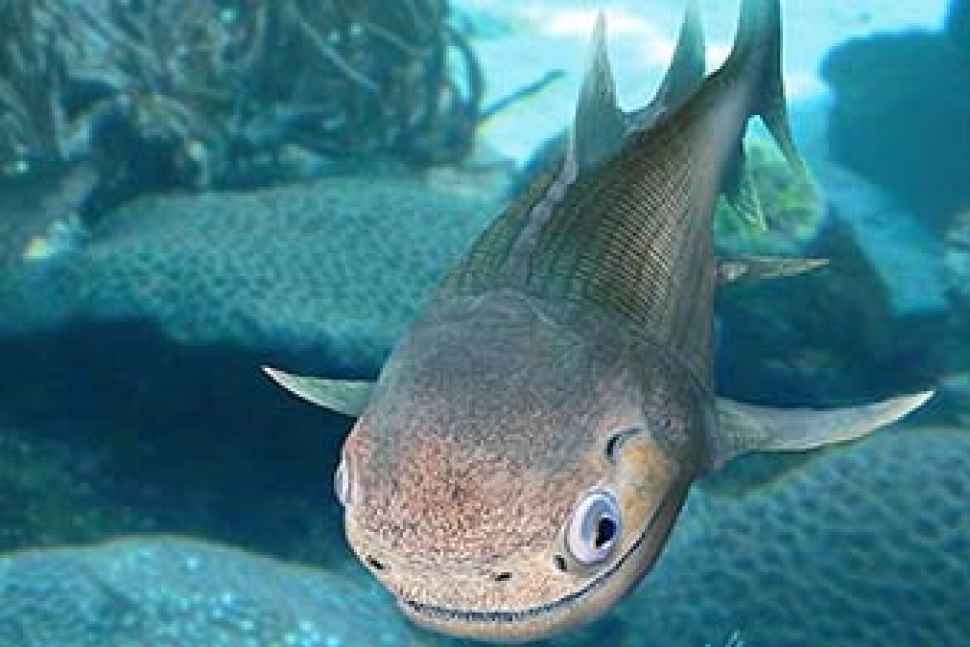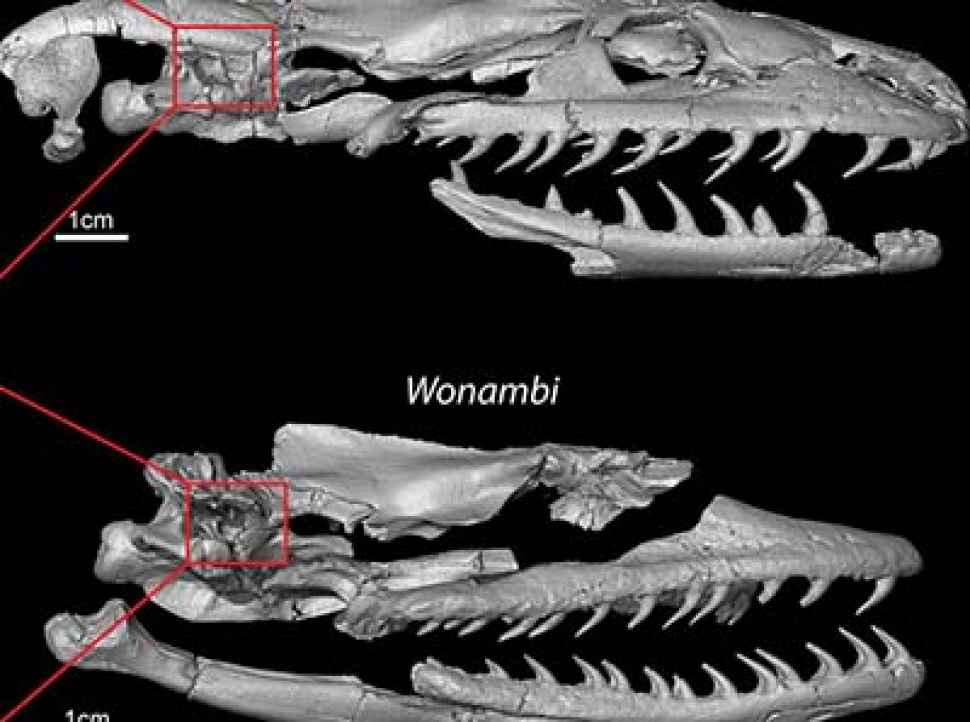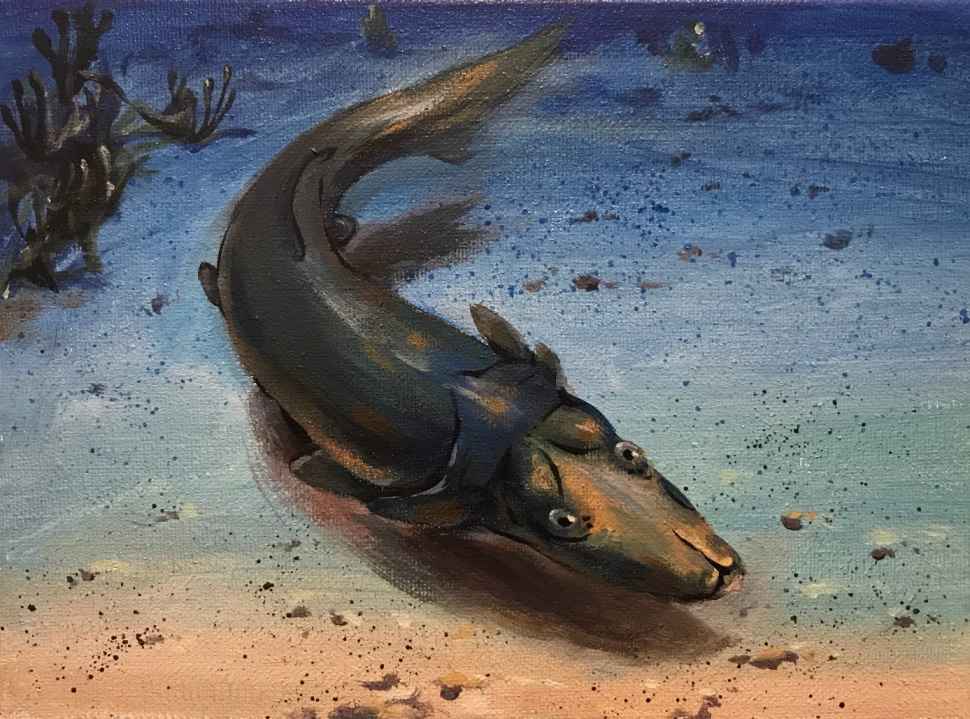Flinders Palaeontology
Uncover the secrets of life
Palaeontology at Flinders
If you have a passion for uncovering long-buried secrets that deepen our understanding of how life on Earth evolved, Flinders University can turn that passion into a rewarding palaeontology career.
Our students work with Flinders palaeontologists in our state of the art, purpose-built facilities. With world-class labs and Australia’s largest palaeontology academic and research team, we regularly make ground-breaking discoveries that attract international attention.
Developed around collaboration, innovation and hands-on experiences, at Flinders you’ll gain skills and specialist knowledge from Australia’s leaders in the field.
Australia’s only palaeontology degree
Study a Bachelor of Science (Palaeontology)
Flinders is the only university in Australia to offer a dedicated undergraduate degree in Palaeontology, combining lab and field-based topics from Biological and Environmental Sciences, Archaeology and Visual Arts.
The Bachelor of Science (Palaeontology) will provide you with in-depth knowledge and appreciation of the Australian fossil record, and a broad-based foundation in the scientific principles underpinning palaeontology and allied disciplines.
Our students emerge with a deep understanding of life through time and space, particularly for Australian vertebrates and their environment.
Fast facts
SATAC code: 224061
Course length: 3 years full-time (or equivalent part-time)
Location: On campus, Bedford Park
Why study palaeontology at Flinders?
Largest university academic & research team in Australia
Flinders boasts the biggest palaeontology team in Australia with six specialist professors and over 25 researchers.
With an unmatched depth of expertise that spans the last 400 million years of Earth history, Flinders Palaeontology is a highly productive team of experts making globally significant discoveries, publishing in the world’s leading science journals and attracting millions of dollars in grants.
State-of-the-art facilities
Home to a $1.1 million-dollar palaeontology hub, Flinders is equipped with cutting-edge technology and well-equipped labs for studying, storing and preparing fossils, plus a confocal microscope facility, a large fossil collection and extensive library.
The world-class facilities and diverse, collegial team provide an ideal environment for supporting students and early-career researchers to make exciting discoveries and forge their own paths in science.
Expert leadership
Flinders Palaeontology is led by Professors Gavin Prideaux and John Long. Prideaux is a world-recognised authority on mammal evolution, extinctions and past responses of species to environmental change.
Long is a Strategic Professor in Palaeontology who served as the President of the Society of Vertebrate Paleontology and is internationally renowned for his work on the early evolution of vertebrates including finding the world’s oldest vertebrate embryo.
What our students say
The faculty of the Palaeontology department at Flinders are some of the most knowledgeable in their fields and represent an incredible boon to students.
There is no doubt Flinders is the best choice for palaeontology students, not only in Adelaide, but across Australia. Their department is world-class, and their teachers more so. Palaeontology at Flinders in particular stands out because it so readily encourages each person to go in their own direction.
If you are a passionate, driven individual with a thirst for practical and experience-based learning Flinders will suit you perfectly. With flexible courses lead by supportive educators all inside comfortable and modern facilities, Flinders will have everything you need to make a successful career in biological sciences.
Flinders is one of the best places to study palaeontology in the world. Here, students can get hands on experience in the laboratory and field with some of the world’s greatest palaeontologists in some of the best sites.
Read more on their experiences in Palaeontology:
Further palaeontology study options
Honours year
Students enrolled in the Bachelor of Science (Palaeontology) degree can apply for a fourth year Honours degree. Honours is a qualification that demonstrates your capacity to undertake study at an advanced level in your area and it will help you progress to doing a higher degree by research.
Doctor of Philosophy
Make a difference with a higher degree by research in palaeontology or archaeology. Work with highly qualified and recognised supervisors, connect with industry, government and the community, and contribute to the global research conversation.
Flinders Palaeontology Society
The Flinders University Palaeontology Society exists as a unique student-run group of like-minded palaeontology enthusiasts, based on campus but with members spread across the globe. The society gives members the opportunity to participate in social and educational activities including hands-on research, field trips, workshops and in-lab fossil preparation.
Flinders palaeontology news
Fossil link to oldest fish, and life on earth
Flinders University fossil hunters have unearthed a new evolutionary link to the first bony fishes.
Read moreBurrowing into the inner world of snake evolution
New research reveals how snakes may have evolved from lizards.
Read moreBizarre ‘platypus fish’ found in Australia
Scientists in Australia have discovered a remarkable ancient fish fossil with a long snout, reminiscent of a platypus bill.
Read more![]()
Sturt Rd, Bedford Park
South Australia 5042
South Australia | Northern Territory
Global | Online






